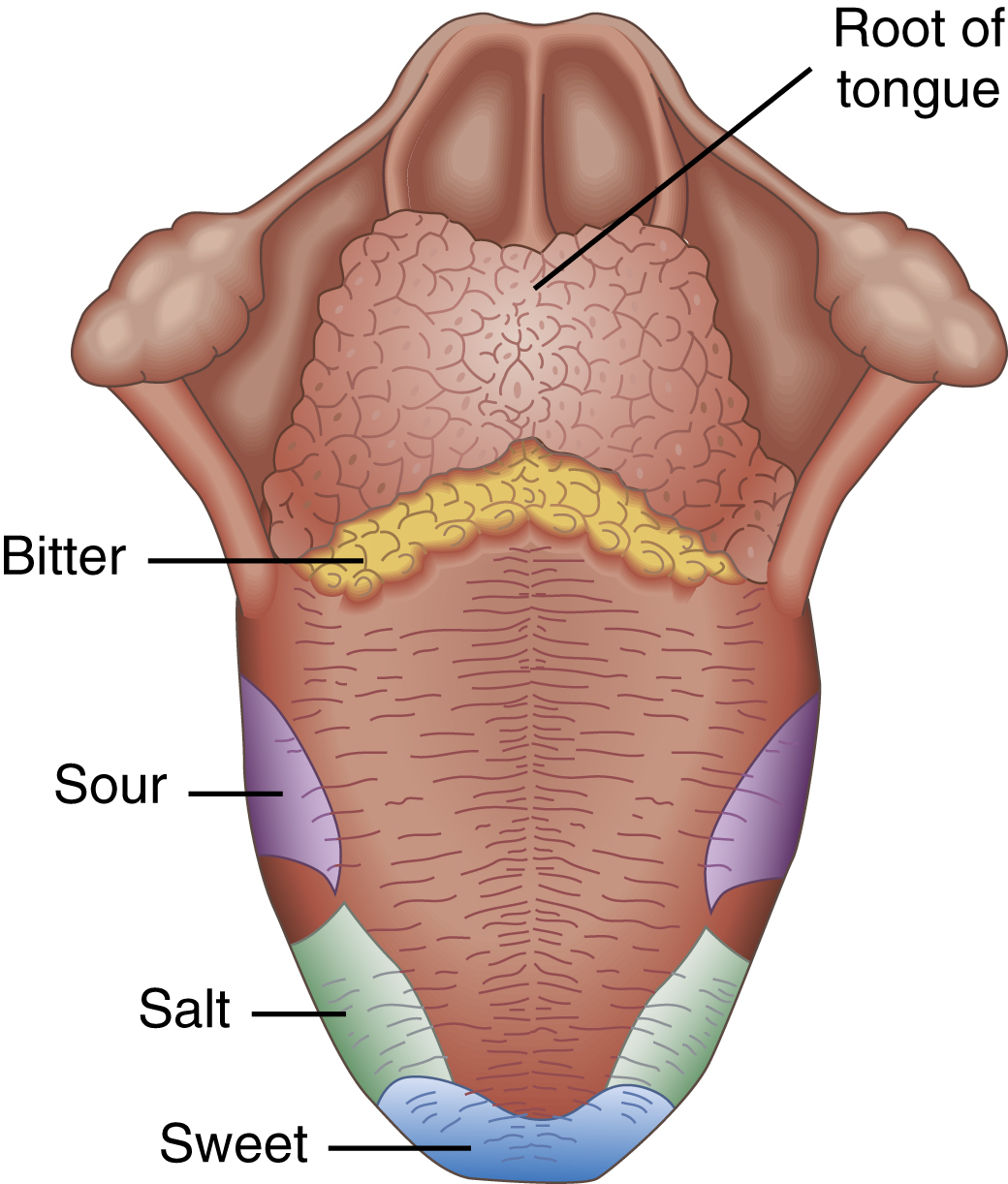taste [ME, tasten] , the sense of perceiving different flavors in soluble substances that contact the tongue and trigger nerve impulses to special taste centers in the cortex and thalamus of the brain. The four basic traditional tastes are sweet, salty, sour, and bitter. The front of the tongue is most sensitive to salty and sweet substances; the sides of the tongue are most sensitive to sour substances; and the back of the tongue is most sensitive to bitter substances. The middle of the tongue produces virtually no taste sensation. Chemoreceptor cells in the taste buds of the tongue detect different substances. Adults have about 9000 taste buds, most of them situated on the upper surface of the tongue. The sense of taste is intricately linked with the sense of smell, and taste discrimination is very complex. Many experts believe the capacity to perceive different tastes involves a synthesis of chemoreactive nerve impulses and coordinating brain processes that are still not completely understood.

